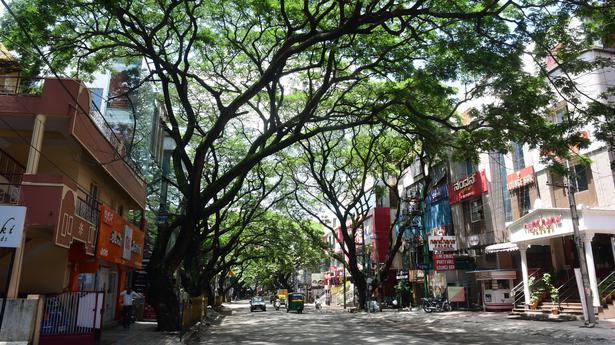
‘Us vs them’ won’t work; it has to be an ‘us vs the problem’ approach
The Hindu
Despite the challenges posed by COVID-19, not to mention the increase in taxes and duties to the gov
Despite the challenges posed by COVID-19, not to mention the increase in taxes and duties to the government, the Food and Beverage scene in Bengaluru has managed to survive with neither relief nor sympathy. The restaurant fraternity has always been the first to deal with issues like recessions, pandemics and public laws. While they have become accustomed to being an easy target, there is a limit before this becomes too much. There is just one after another relentless issue that the industry faces day to day.
Restaurants usually have two worthwhile time-slots — lunch and dinner service — lasting about two hours each at best due to all the policing and curfews. Allowing restaurants to remain open for longer hours, or even 24/7 if they want to, will help them extend the meal hours, thereby also having an opportunity to accommodate more customers. Further, more than 60% of most revenue is earned over the weekend and around the clock functioning on these days will help the industry to recover at least some of the losses from the pandemic days.
However, this too comes with hurdles. Pubs may seem like a nuisance to some, especially in the residential areas, and there is definitely a stigma around them. But it is often forgotten that these establishments are also responsible for providing many jobs. Overall, the hospitality industry provides close to 7.3 million jobs, and each one is feeding even more mouths. That amount has shrunk by over 50% because of the pandemic. Most establishments are still reeling from the pandemic, with most of their employees not yet returning to work amongst other problems.
At times like these, some restaurants and pubs have been able to find a niche for themselves in less competitive, less commercial areas that have been able to help their situation. Most of the locations around residential areas, unlike the posh settings of Central Business District and Indiranagar, cater to the catchment in the vicinity. (And rightly so, why would one travel to a much less commercial part of town for a drink, especially if it is out of their way?)
Local bars try hard to maintain friendly relations, with every establishment striving to be “that friendly neighbourhood bar” where people come to relax and “order the usual.” Restaurants jump through all sorts of hoops to get the appropriate licenses and permits, ensuring that they operate well within the rules. These include everything from permission to play music at permissible sound limits to food safety compliance. They also ensure there is ample space for parking and hire sensible valet services to not hinder the residents. Some establishments go so far as to give residents barricades so that other patrons refrain from parking in their spots.
Thus, it is essential to note that the businesses will never want to cause any trouble or disharmony as it would negatively impact their service to customers. On the contrary, they usually have a positive cascading effect on the economy of the area due to the changes in supply chain, the added foot traffic and the rise in real estate values. Many of these establishments give out food and water to the underprivileged daily.
If an issue is community based, then the solution too has to be community based and not at the cost of one over the other. But for this, a decisive narrative “Us vs them” will not work. It needs to be an “Us vs the problem” approach.

The girl, who was admitted to Aster CMI Hospital with alarming breathlessness and significant pallor, was diagnosed with Wegener’s Granulomatosis (now known as Granulomatosis with Polyangiitis or GPA), a rare autoimmune condition that causes spontaneous bleeding in the lungs, leading to acute respiratory failure.

ACB files case against IPS officer N. Sanjay in Andhra Pradesh. The official is accused of manipulating the tender processes for awarding contract for development and maintenance of AGNI-NOC portal, and conducting awareness meetings for SC/STs. It is alleged that the total value of properties stolen, or involved in the case is estimated at ₹1,75,86,600.









